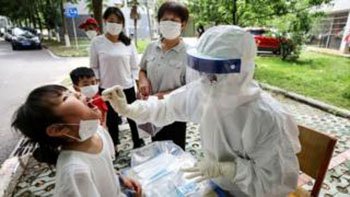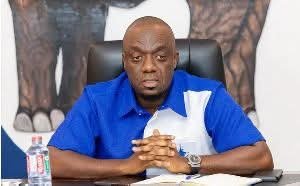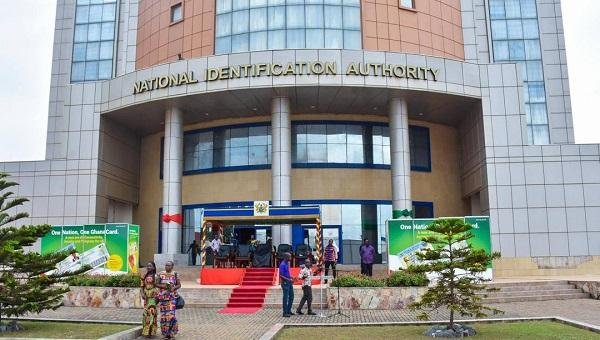News
Global push for inquiry into COVID-19 response

Global health leaders are pushing for an independent review of the response to the COVID-19 pandemic at the United Nation (UN)’s World Health Assembly.
Monday’s virtual meeting brings together envoys from 194 member states of the World Health Organisation (WHO).
The WHO is facing questions on how it has dealt with the coronavirus (COVID-19) pandemic.
Chinese President Xi Jinping, who has defended his country’s actions during the outbreak, spoke during Monday’s opening ceremony.
He said China had acted “with openness and transparency” and insisted that any investigation should happen after the pandemic was brought under control.
In other opening remarks, WHO Director-General Dr Tedros Adhanom Ghebreyesus welcomed a proposed resolution calling for a review of the WHO’s handling of the pandemic and said it would initiate it “at the earliest opportunity”.
South Korean President Moon Jae-in said the WHO must be given more legal powers to ensure that countries report outbreaks and share data.
“A novel infectious disease could emerge at any time and we must be able to respond more quickly and effectively,” he said.
The two-day assembly – an annual meeting that reviews the work of the UN’s health agency – comes amid recriminations between the US and China over the virus.
The US has already stopped its funding for the agency and is promoting its own vaccine programme.
More than 4.5 million people have been infected and more than 300,000 have died since the virus emerged in China in December.
The European Union, alongside countries including the UK, Australia and New Zealand, is pushing for an inquiry into how the pandemic has been handled and what lessons can be learned.
EU spokeswoman Virginie Battu-Henriksson said several key questions needed to be answered as part of any review.
“How did this pandemic spread? What is the epidemiology behind it? All this is absolutely crucial for us going forward to avoid another pandemic of this kind,” she said.
However, she added that now was not the time for “any sort of blame game”.
A draft resolution calling for a review, to be put to a vote on Tuesday, requires a two-thirds majority to pass and already has support from 116 of the 194 member states, according to Reuters.
Last month, an European Union (EU) report accused China of spreading disinformation about the crisis. -BBC
News
Criminal and Seditious Libel Law was repealed in 2001 yet we still face harassment – NPP

The New Patriotic Party (NPP) has criticised the government for what it calls a return to the “culture of silence” in Ghana, despite the repeal of the Criminal and Seditious Libel Law more than two decades ago.
In a press statement issued on Wednesday, the party said the arrest and detention of its Bono Regional Chairman, Kwame Baffoe, also known as Abronye, for allegedly insulting the Inspector General of Police (IGP) was the latest sign of political intimidation.
According to the NPP, eight months into President John Dramani Mahama’s administration, state security had been “weaponised” not to fight illegal mining or protect citizens, but to intimidate and punish dissenting voices.
The party said insecurity in areas such as Bawku, Nkwanta and Gbeniyiri in the Savannah Region had claimed more than 32 lives and displaced over 50,000 people, yet the police and national security were more focused on arresting opposition supporters and social media users for their posts.
The NPP noted that Ghana abolished the Criminal and Seditious Libel Law in 2001 under President John Agyekum Kufuor to protect free speech and media freedoms.
It described the recent arrests of opposition members as an erosion of those democratic gains.
The party said it did not condone insults or vulgar language in public discourse but stressed that anyone who felt defamed should seek redress through civil defamation suits, not criminal prosecution.
It also accused the government of undermining the judiciary by “weaponising” it against political opponents, citing the removal of the Chief Justice.
“The growing climate of intimidation and criminalisation of speech is a serious assault on Ghana’s democracy,” the statement signed by NPP General Secretary Justin Kodua Frimpong said.
The NPP called on all Ghanaians to resist what it described as a return to tyranny and pledged to roll out a series of actions to protect the country’s democratic gains.
By: Jacob Aggrey
News
NIA opens Premium Centres to register children

The National Identification Authority (NIA) has started registering Ghanaian children aged between six and 14 years at all its Premium Centres across the country.
The Authority says the exercise is part of its duty to register every Ghanaian, both at home and abroad, so that all citizens can have a secure and verifiable national identity.
It explained in a statement issued today that the registration will help build a complete and inclusive National Identity Register (NIR) that captures every Ghanaian from childhood.
According to the NIA, the fee for first-time registration at Premium Centres is GHS 310, which is the approved charge for premium services.
The Authority said the requirements are the same as for applicants aged 15 years and above.
It affirmed that Parents or legal guardians were required to present either a valid Ghanaian passport of the child, the original copy of the child’s birth certificate, or be a Ghana Card holder who can vouch for the child.
The NIA also announced that from Monday, September 15, 2025, its online registration and booking system will be extended to the remaining 11 Premium Centres nationwide.
This it said will allow parents and guardians to schedule appointments more conveniently and avoid delays at the centres.
It further stated that information on the issuance of Ghana Cards for children aged six to 14 years who had already registered will be shared later.
In the coming weeks, the Authority plans to extend this registration service to all NIA District Offices to make it easier for more people to access the service.
By: Jacob Aggrey






